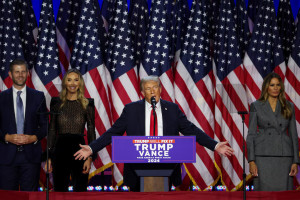Columns
Transparency in governance, through cyberocracy
Nepal's bureaucracy has not kept pace with the radical political change the country has gone through.
Bimal Pratap Shah
Prime Minister KP Sharma Oli’s speech at the Oxford Union, UK last month stressed the importance of freedom, rights and democracy, even though at home his administration has been continuously criticised for pursuing authoritarian ambitions. People have been arrested for making mild comments on social media even though they were simply exercising their freedom of speech that is very clearly enshrined in Nepal's constitution. This is because the bureaucracy has not kept pace with the radical political change the country has gone through in the last two decades. Therefore, if the political parties and the country as a whole hope to make any progress towards socio-economic development in the coming days, they will have to install cyberocracy.
The term cyberocracy basically means to rule through information and communication technology. It is bureaucracy changed by information and communication technology. The main difference between bureaucracy and cyberocracy is the mindset. The former tends to limit information flow and freedom of speech while the latter guarantees freedom of speech and also shares information with the public to promote transparency and good governance. Furthermore, bureaucracy focuses on hard quantitative skills, budgeting, and short-sighted policies, whereas cyberocracy is about using soft skills like managing farsighted policies by understanding culture and public opinion. For instance, the Information Technology Bill and the Guthi Bill are manifestations of the 20th-century bureaucratic mindset of the government. It seems the concerned stakeholders were not consulted while conceptualising and writing both bills.
Big Brother state
Cyberocracy is necessary to create new forms of dynamic governance mechanisms and democracy suited for the 21st century. A growing number of prototype ‘cybercratic’ elements can be found in many countries even though no country has been fully transformed. It is very important for a developing country like Nepal to adopt these new methods, or it could end up moving towards becoming a totalitarian Big Brother state. Big tech companies like Facebook, Tencent, Baidu and Google are helping governments to fuel their authoritarian ambitions. Google with its search engine, language assistants and sensors on Android mobile phones have become an all-knowing and all-seeing entity. Google is also steering our thinking and actions by answering 90 percent of our questions. It is even guiding us towards a direction it wants to with auto-suggestions in searches and emails.
The modern bureaucracy is not able to understand the age of the Fourth Industrial Revolution where artificial intelligence plays an important part in shaping our daily lives. Democracy is already wrongly considered to be an outdated concept because modern bureaucracies have not been able to understand and use digital technology effectively in a citizen-centric manner. Instead, governments have been using smart digital technologies to make the Orwellian vision of the surveillance state a reality.
Governments have to use the power of artificial intelligence to sustain democracy. Artificial intelligence is able to better understand individual preferences and can help ignorant voters make decisions that will truly benefit the community and the country. It can help voters get the facts about the candidates before voting takes place. It can prioritise issues that are important for the community instead of elected officials biasedly deciding what is important for the population. It can filter out negative campaigning, fake news, biased reporting and illogical arguments. Above all, it can be used to spot fraud and corruption in the government.
At the same time, artificial intelligence and simpler digital technologies can also be used to damage democracy. It can be used to manipulate people towards a certain ideological direction or political candidate. Voters receive different targeted messages based on their political or religious ideological preferences. For example, people with a conservative predisposition receive targeted advertisements with arguments glorifying tradition and community. Cambridge Analytica, an advertising company, scraped 87 million user records from Facebook to create an advertising campaign to help swing the 2016 election for President Trump. The US justice system and Facebook were clueless about how the cutting edge ad agency had manipulated the people that were innocently using social media platforms. Artificial intelligence is not the problem, the problem is the covert nature of its use to create targeted messages that prey on people’s psychological vulnerabilities.
Confused government
In reality, the algorithmic governance used by tech giants is very far from the values of democratic countries as they are governed by software and algorithms that regulate our interactions and online communications through obscure rules embedded in the source code. Governments, at least in the developed countries, are catching up with the technology and creating relevant laws at very short intervals. The government of Nepal is confused as to how to go about governing algorithms and is coming up with draconian laws that fit the Soviet era. It is time for citizens to be digitally literate and pressure the government to design a functional cyberocracy and a digital economy that serves the country as a whole and not just a few who are powerful.
Shah has worked as a consultant for the Single Window Component of the Nepal-India Regional Trade and Transport Project.




 23.12°C Kathmandu
23.12°C Kathmandu














